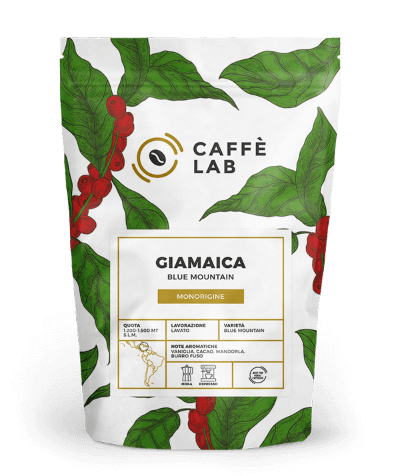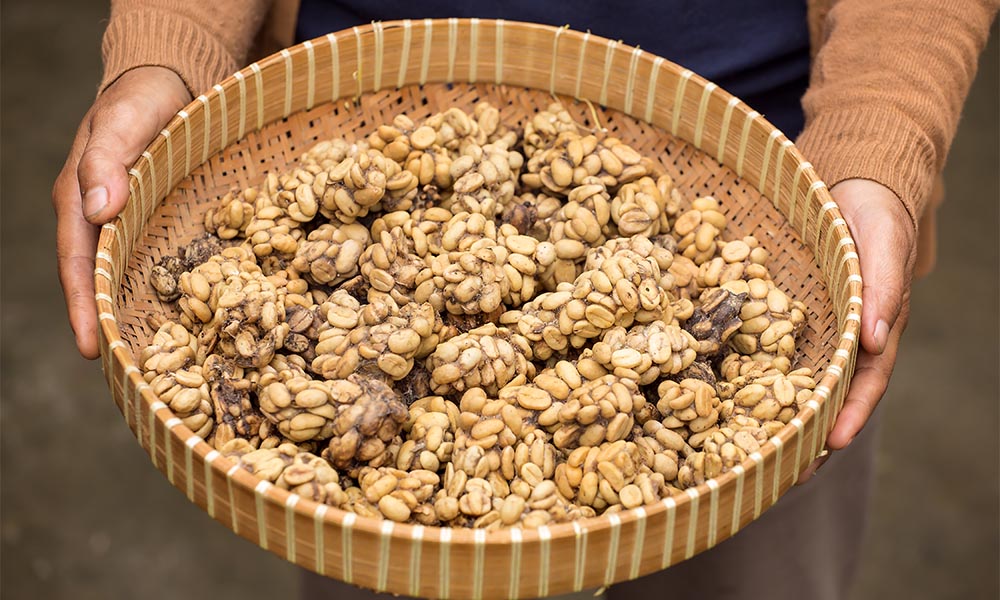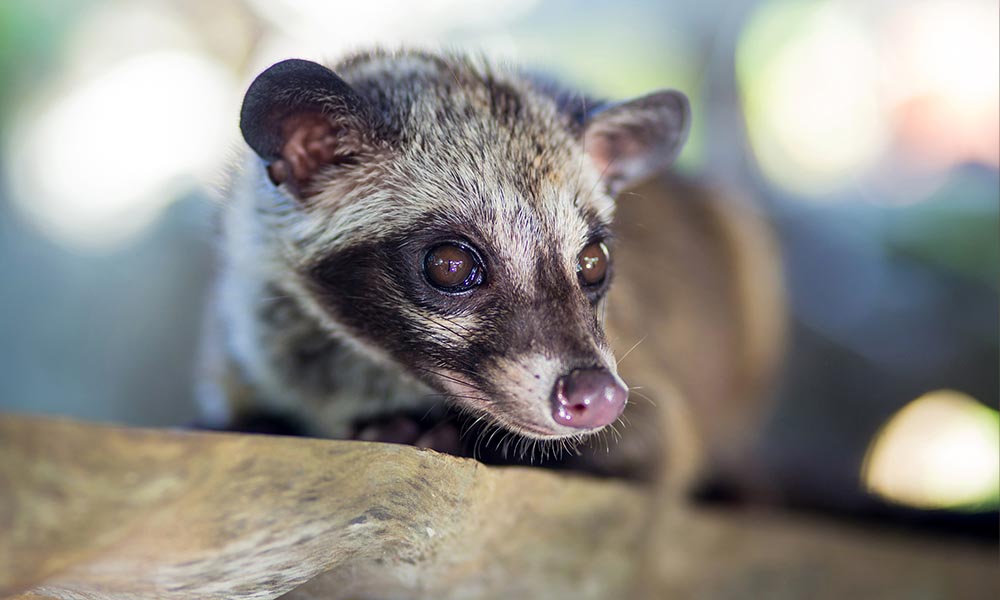
Jamaica
Blue Mountain


Kopi Luwak, often described as the most expensive and rarest coffee in the world, is one of the beverages that has sparked the most discussion in recent decades. Its fame comes from a curious story, a unique production process, and an aura of exclusivity that has made it the object of desire for collectors and enthusiasts.
But alongside its charm, this coffee has also attracted criticism and controversy, especially concerning the ethics of its production. For this reason, we at CaffèLab have decided to no longer include it in our catalog.

The term Kopi Luwak originates in Indonesia: kopi means coffee and luwak is the local name for the Asian palm civet, a small animal similar to a mongoose.
Tradition tells that Indonesian farmers, during the Dutch colonial era, discovered that coffee beans eaten and then expelled by the civet had a different flavor—smoother and less bitter. This is because the beans, while passing through the animal’s digestive system, undergo a natural fermentation that alters their chemical composition.
This is how Kopi Luwak was born: a rare coffee with distinctive aromatic characteristics that over time has become a symbol of luxury and gastronomic curiosity.
Kopi Luwak became known worldwide thanks to films, documentaries, and TV programs that showcased it as an exclusive product, with prices reaching hundreds of euros per kilo.
Its uniqueness derives from two main factors:
With growing international demand, natural production was no longer sufficient. Many producers began keeping civets in cages, force-feeding them coffee cherries to increase yields.
This has led to several issues:

For years we included Kopi Luwak in our catalog, sourcing it exclusively from civets living freely in their natural habitat, without farming or coercion. However, over time we realized how increasingly difficult it has become to monitor the market and how high the risks are of unintentionally supporting unethical production.
For this reason, we have chosen to no longer offer Kopi Luwak at CaffèLab.
Instead, we prefer to focus on specialty coffees and on transparent, sustainable, and respectful supply chains that can deliver unique tasting experiences without compromising ethics and respect for nature.
Kopi Luwak remains a fascinating chapter in the history of coffee, a product that has intrigued millions of people worldwide. However, we believe the future of coffee lies in quality, sustainability, and transparency.
That is why we have made a clear choice: no more Kopi Luwak in our catalog, but only coffee blends that can proudly represent the values of passion and respect that guide us every day.